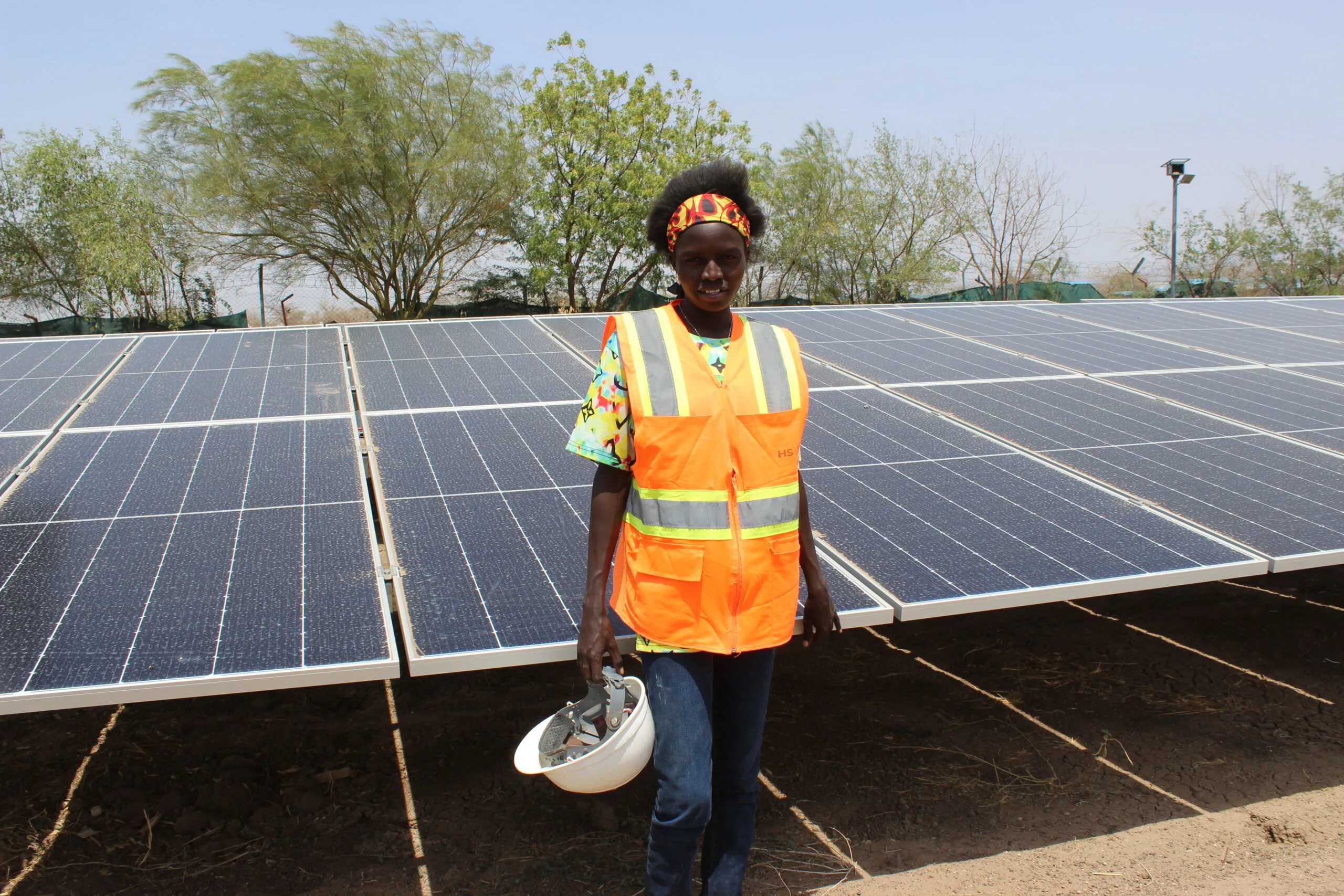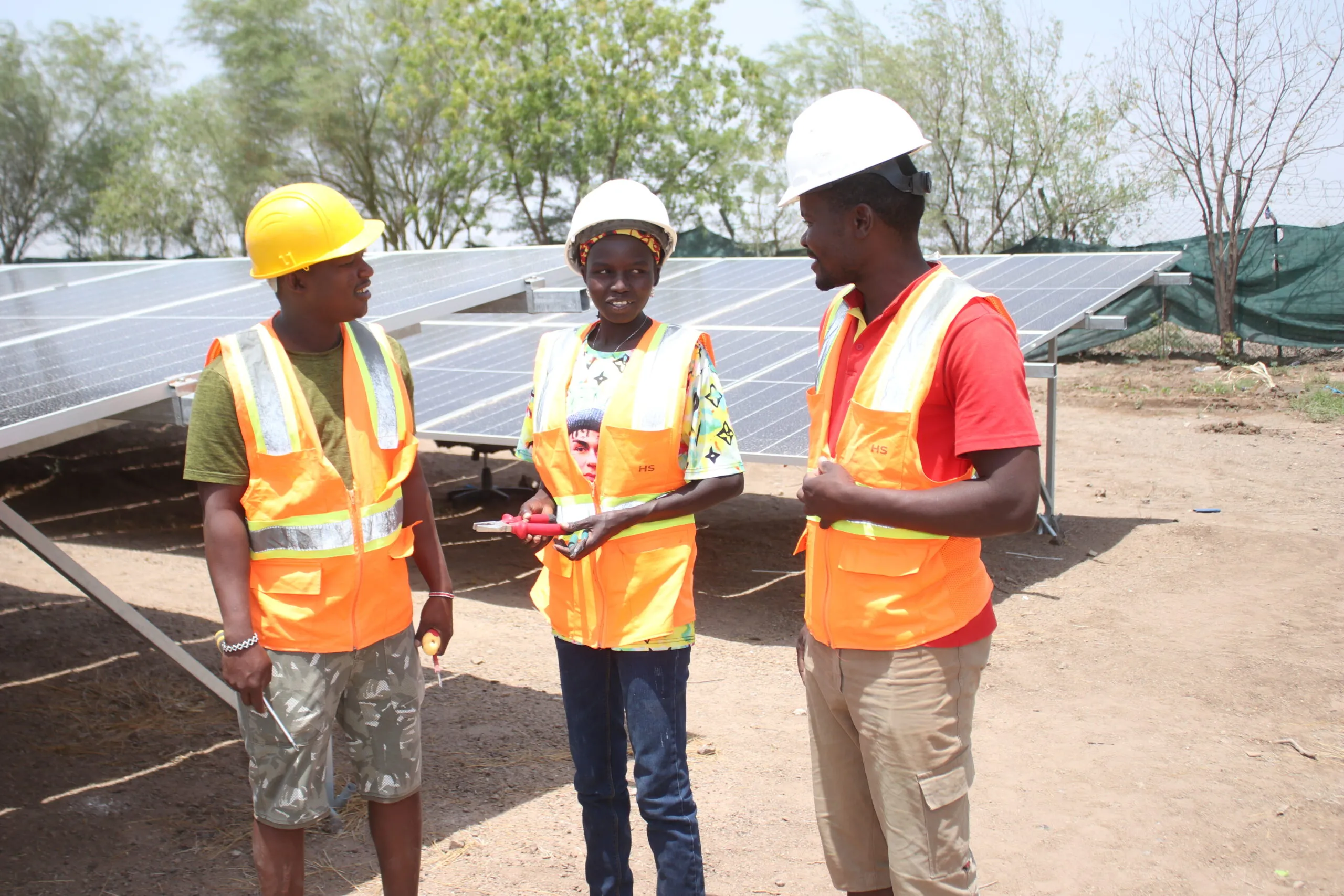She reaches into her vest pockets to retrieve various tools — a screwdriver, pliers, measuring tape, and a bracket. Lucy is focused on the task at hand, only stopping occasionally to discuss the plan with her colleagues, Nathan Omondi and Joseph Parpaai, who are also electrical and solar technicians supporting the installation.
“This work makes me confident. It makes me happy,” Lucy says, smiling.
She is one of the only women solar technicians in Kenya’s Kakuma Refugee Camp, which together with the nearby Kalobeyei settlement hosts 249,000 refugees from 24 nationalities. Like Lucy, some of these refugees have fled conflict, insecurity, disasters, or threats of persecution; others were born in the camp.



